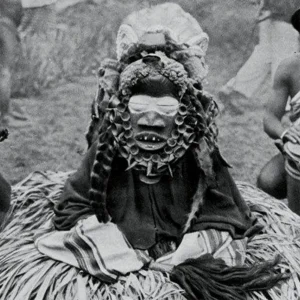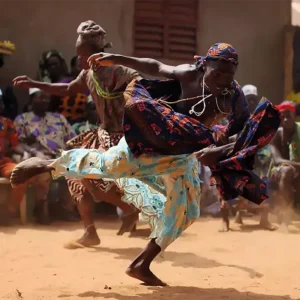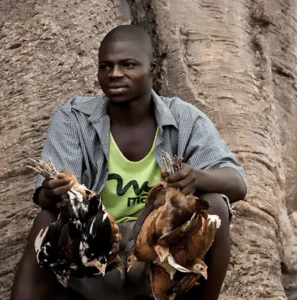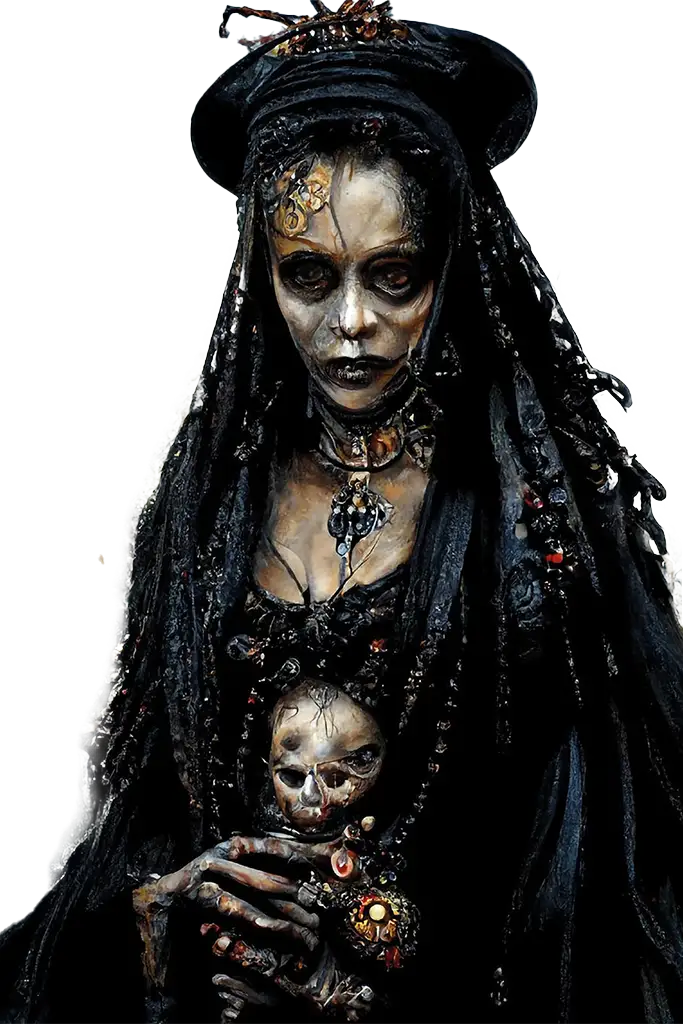
Voodoo is the Haitian national religion, which in the ancient language means “Spirit-Spirit-God.
This religion existed between the 16th and 19th centuries as a blend of West African traditions, Roman Catholicism and Freemasonry.
The rapid spread of voodoo, due in part to the transatlantic slave trade and suppression by the Catholic Church, led to a unique blend of monotheistic (Bondju) and polytheistic (multiple Iwas) elements.

In voodoo, male priests (oungan) and female priests (manbo) lead rituals, consultations and healings after years of secret initiations, giving them an important social and political role.
These voodoo priests are assisted by a dedicated congregation that helps them with a variety of ritual tasks, from dancing and singing to animal sacrifice.

In voodoo, feeding the lwa is essential, with offerings such as a dry meal (manje sek) of grains, fruits and vegetables preceding simple prayers.
Voodouists gather in an ounfò, where oungan and manbo lead rituals with drumming, dancing and singing to get into a trance and allow the Iwa to communicate.
During these voodoo rituals, animal rituals are performed to transfer the life energy of animals to the lwa, reinforcing divine power.
“Dime or a nickel, anyone could buy
Voodoo of any kind
She had potions and lotions, herbs and tanna leaves
Guaranteed to blow your mind” (stanza from
The witch queen of new orleans)

© 2025 Genco – Privacy statement . All rights reserved – Website Notion technologies
Multilingual WordPress with WPML